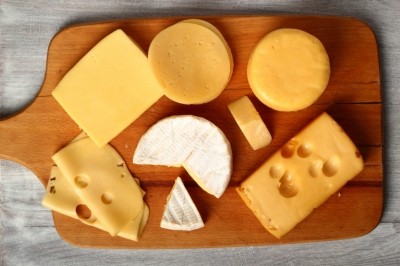Food industry gives cautious reception to UK-EU customs plan

Food and Drink Federation’s (FDF) director general Ian Wright described the plan, as “most welcome”, adding that the proposals, “if they can be agreed, go some way in protecting business from a 'cliff edge'”.
“FDF’s priority is to ensure that our access to EU markets is not undermined during the transition period. Ensuring a single point of change would help to minimise unnecessary disruption for businesses that have established trading relationships with the EU.”
“The real challenge will then follow in designing and negotiating a model that maintains these benefits beyond the transition period, delivering the same ease of trading that UK food and drink currently enjoys with the EU27, with zero tariffs and no new regulatory or other non-tariff barriers,” he added.
Two main approaches
The paper, part of a series setting out key issues with the European Union, details two broad approaches the UK could adopt to ease trade routes with the EU and the rest of the world post-Brexit.
One approach would see a ‘streamlined customs arrangement’ where existing arrangements between the UK and the EU would continue, along with new arrangements to reduce and remove barriers to trade.
Technology-based solutions to make it easier to comply with customs procedures are also proposed.
The other approach details a new customs partnership with the EU in which a UK-EU customs border would not be needed.
One potential approach, the paper suggested, would involve the UK mirroring the EU’s requirements for imports from the rest of the world where their final destination is the EU.
However, the paper acknowledged that this approach was “unprecedented” and could be “challenging to implement and we will look to explore the principles of this with business and the EU”.
Wright commented that the UK’s success was inextricably linked to its ability to import and export raw ingredients and finished goods across borders, adding that “nowhere is this more the case than with our Irish neighbours”.
The paper stated that the UK must avoid a return to a hard border, and trade and everyday movements across the land border must be protected as part of the UK-EU deal.
‘British farming is the bedrock’
Commenting on the Government’s paper the National Farmers Union (NFU) president Meurig Raymond said: “The NFU has long called for a transitional deal that maintains as free and frictionless trade in agri-food products as possible and it is pleasing to see Government recognise the concerns of the sector.
“The British farming sector is the bedrock of the largest manufacturing sector in the UK – food and drink. Food and farming contribute £109 billion to the nation’s economy and employ 3.8 million people.”
Comments by the FDF and the NFU came after secretary of state for exiting the EU David Davis detailed his plans for a time-limited customs union between the UK and the EU in which UK businesses would only have to adjust once to a new customs relationship.
“The approaches we are setting out will benefit both the EU and UK and avoid a cliff-edge for businesses and individuals on both sides.
“The UK is the EU’s biggest trading partner so it is in the interest of both sides that we reach an agreement on our future relationship. The UK starts from a strong position and we are confident we can deliver a result that is good for business here in the UK and across the EU.”
Guy Verhofstadt, European parliament's Brexit coordinator took to Twitter to air his concerns, stating: “To be in & out of the Customs Union & "invisible borders" is a fantasy. First need to secure citizens’ rights & a financial settlement.”

















